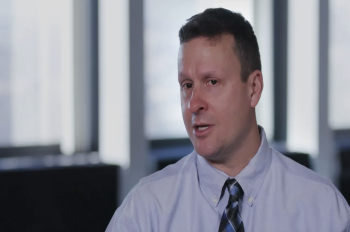Microfluidic Tool Aims to Catch Dental Decay Before It’s Too Late

A multidisciplinary team of Illinois Institute of Technology professors led by Professor of Chemistry Rong Wang received an award from the National Institutes of Health to develop a device that will let dentists catch tooth decay at an earlier stage.
“Usually by the time a dentist figures out that someone has periodontitis, it’s too late,” says Assistant Professor of Biomedical Engineering Abhinav Bhushan, a co-principal investigator on the grant. “Usually this means the dentist needs to do a root canal or some kind of restorative work.”
The effects of serious tooth decay can be painful and life-altering.
“It’s not life or death, but it is close,” says Bhushan. “It really impacts people’s quality of life, and it’s also very expensive.”
Researchers have also found increasing evidence of a correlation between periodontitis and other diseases such as diabetes and Alzheimer’s. The Centers for Disease Control and Prevention report that nearly 50 percent of adults have some form of periodontal disease.
This team’s solution is to compare the saliva samples of human subjects who either do or don’t have periodontitis and search for biomarkers associated with the disease.
Part of the challenge of the endeavor is that they don’t expect to find just one signifier that they can point to—rather the researchers are looking to identify a collection of bacteria, proteins, metal ions, and enzymes that are associated with the presence of tooth decay.
The team is working on developing a device that can then test a saliva sample for the presence of the range identified biomarkers.
Bhushan is using his expertise in building microfluidic devices to develop the backbone of the device.
Bhushan says the team considers it essential to create a device that can do this analysis quickly.
“The real vision of this device is to be able to do the entire measurement in 20 minutes, so you go to the dentist’s office, give a saliva sample, and by the time the dentist actually sees you the results are ready,” says Bhushan. “If we were to say, ‘Come to the office today, give your sample, come back tomorrow for the results,’ I think our compliance would go down a lot.”
Eventually, says Bhushan, this may be a device that everyone can pick up at the drug store and use independently.
“We feel that early capture of periodontitis is going to make an impact not only for dental disease, but also other chronic disorders that are associated with periodontitis,” says Bhushan.
The project brings together Illinois Tech faculty from many disciplines including Bhushan; Gladwin Development Chair Assistant Professor of Computer Science Yan Yan; Industry Associate Professor of Information Technology and Management Jeremy Hajek; and from the Department of Chemistry, professors Richard Guan, Ishaque Khan, and Yuanbing Mao, Research Professor John-Bruce Green, and Robert E. Frey Jr. Endowed Chair in Chemistry David Minh.
The study is being conducted in collaboration with researchers at University of Illinois Chicago who will provide clinical expertise including the human subject study.
Photo: Assistant Professor of Biomedical Engineering Abhinav Bhushan




